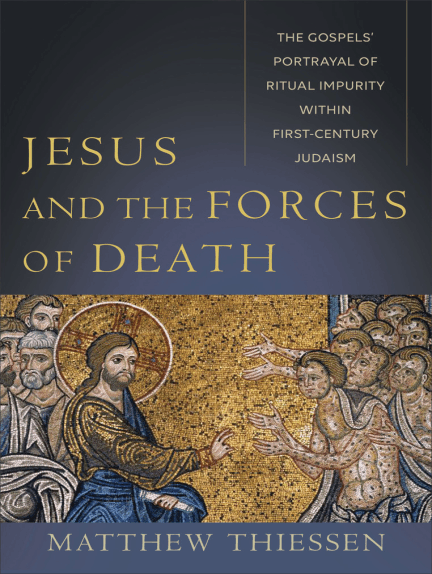Religion
Related: About this forumBelieve It or Not, Jesus Was a Good Jew
A new book seeks to challenge this misunderstanding and argues that Jesus wasn’t just ethnically Jewish, he was an active supporter of Jewish religious laws.
Jesus of Nazareth is history’s most famous carpenter, but he is also, according to one poll history’s most famous Jew. He was born to Jewish parents, was circumcised, went to (the) Temple, attended synagogue, and read the Torah. See, he’s a first century middle eastern Jew.
Nearly two thousand years of Christianity, however, have presented Jesus as something else: as a religious innovator who was not just in conflict with Jewish authorities, but was actively trying to overturn and replace Judaism. A new book seeks to challenge this misunderstanding and argues that Jesus wasn’t just ethnically Jewish, he was an active supporter of Jewish religious laws.
In his recently published book Jesus And the Forces of Death, Dr. Matthew Thiessen, an associate professor of religious studies at McMaster University, looks at Jesus afresh. “It’s so easy for most Christians to think of Jesus as the first Christian. Which for many Christians today means not Jewish,” Thiessen told The Daily Beast, “but when Jesus is understood as Christian, the gospel narratives read as though Jesus rejects Judaism and condemns Jews. Jesus becomes anti-Jewish.” The legacy of an anti-Jewish Jesus has been felt throughout history and continues even today but that could change. “When we realize that Jesus was Jewish,” Thiessen told me “and the gospel writers wanted to stress Jesus’s Jewishness, then we read stories of Jesus’s interactions with the Pharisees or Sadducees as inner-Jewish conversations, not some sort of Christian rejection or condemnation of Judaism and the Jewish law.”
Thiessen isn’t the first to make this point. He builds here on the important work of scholars like Geza Vermes, Paula Fredriksen, Amy-Jill Levine, and Joel Marcus all of whom picture Jesus as thoroughly embedded in ancient Judaism. What’s distinctive about Thiessen’s argument is the way that he reconsiders debates and interactions between Jesus and other Jewish religious leaders in the Gospels. In particular, Thiessen is focused on ritual purity regulations or what he calls the “forces of death.” In Jewish law ritual purity regulations govern certain bodily processes (childbirth, menstruation, abnormal genital discharge, skin abnormalities, and death) that both make you impure and are also contagious. To modern Christians, he writes, these seem alien and arcane, but if you want to understand Jesus you have to saddle up because we cannot understand Jesus unless we understand how “first century Jews constructed their world.”
https://www.thedailybeast.com/believe-it-or-not-jesus-was-a-good-jew
left-of-center2012
(34,195 posts)“Jesus and the Forces of Death”
The Gospels' Portrayal of Ritual Impurity within First-Century Judaism
Although most people acknowledge that Jesus was a first-century Jew, interpreters of the Gospels often present him as opposed to Jewish law and customs--especially when considering his numerous encounters with the ritually impure. Matthew Thiessen corrects this popular misconception by placing Jesus within the Judaism of his day.
Thiessen demonstrates that the Gospel writers depict Jesus opposing ritual impurity itself, not the Jewish ritual purity system or the Jewish law.
This fresh interpretation of significant passages from the Gospels shows that throughout his life, Jesus destroys forces of death and impurity while upholding the Jewish law.
https://www.scribd.com/book/458143431/Jesus-and-the-Forces-of-Death-The-Gospels-Portrayal-of-Ritual-Impurity-within-First-Century-Judaism

MFM008
(20,000 posts)circumcised and we aren't Jewish.
multigraincracker
(34,068 posts)who didn’t come along until well the death of Jesus.
edhopper
(34,775 posts)in the Gospels and we have little idea what actually happened historically, who Jesus really was and what of anything in the NT really happened.
multigraincracker
(34,068 posts)nothing, historically shows up to confirm any of it. When the stories are handed down over 90 to 100 years later until recorded, that leaves a lot to mistakes.
edhopper
(34,775 posts)Only two mentions of Jesus outside of the NT, and those are only a couple of sentences. Neither first person accounts.
Cartoonist
(7,529 posts)The religious believe what they want.
Act_of_Reparation
(9,116 posts)Perception is reality. It doesn't matter what the Bible says. It never has. The Bible doesn't define the religion; the believers do.